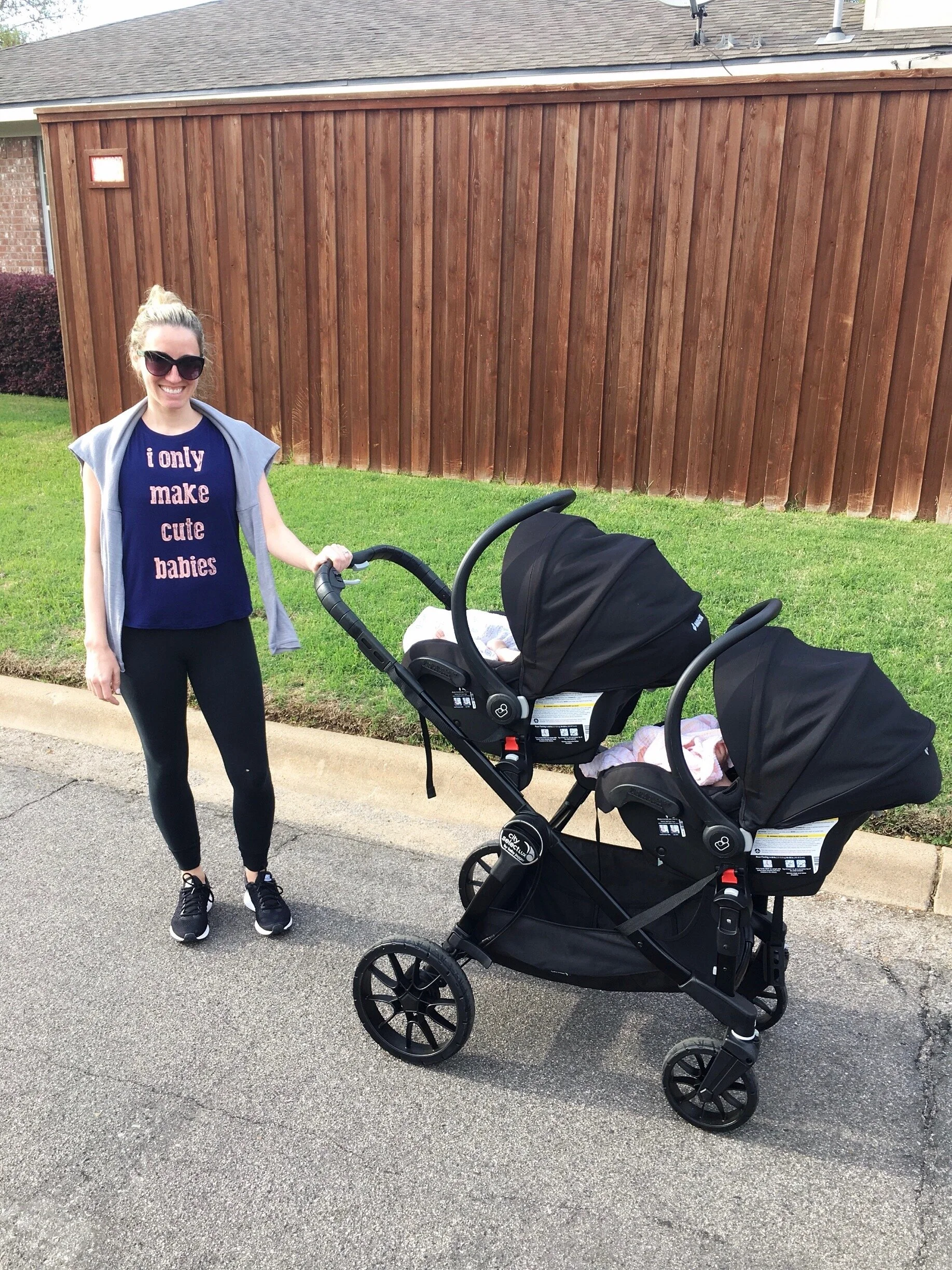Are My Kids At Risk For the COVID-19 Coronavirus?
I recently received this question on my blog from a concerned twin mom and I think it’s an excellent one that’s worth discussing. First, let me preface this by saying that this does not substitute medical advice from your child’s doctor and I’m not an epidemiologist or an infectious disease expert by any means. I have, however, worked in a pediatric pulmonology unit as a Pediatric Nurse Practitioner for nearly 8 years and have been staying informed by reliable resources. So, I figured I’d share some thoughts and information for anyone that also might be worried about their kids, too.
As we all know from following along with the Centers for Disease Control and Prevention (CDC) and the World Health Organization (WHO), the novel coronavirus (COVID-19) is now declared to be a pandemic as of March 11th—meaning it graduated from being an epidemic and it’s now an extremely serious global outbreak.
Photo courtesy of: US Department of State
But what does that mean for children?
The CDC reports that most of the cases (especially those that are severe) that have been reported have been in adults or the elderly. Luckily, it doesn’t seem to be affecting children much at this point. And the few children that have caught it reportedly have had milder cases. Typically, when you’re looking at who has the highest mortality rate with viruses, you see a U-shape—where it mainly affects the very young and the very old. But, what’s being seen with the novel coronavirus is peculiar—because it’s missing half of the U (the kids)! This is a good thing.
Why are kids not really affected, though?
It’s still unclear. But I have to wonder if it’s because kids are regularly exposed to the other 4 common strains of coronavirus. It’s possible that through past exposures to the common strains, kids have built some sort of protection or immunity to the novel kind. For example, I’ve seen many, MANY positive results for coronavirus throughout my recent years at my pediatric hospital. So, seeing that pop up in a patient’s chart has never really alarmed me; however, it’s always been those common strains of the virus, not the COVID-19.
My answer to this concerned mother’s overarching question is this: Generally speaking, your kids are at no greater risk for the novel coronavirus than anyone else.
Of course, there are always caveats, though. Children that MAY have increased risk for getting the novel coronavirus with worse outcomes are those with underlying health conditions (such as asthma, immunodeficiency, chronic lung disease, congenital heart problems, neurological conditions, or chronic steroid-use).
Photo courtesy of: Centers for Disease Control and Prevention
The typical symptoms of the novel coronavirus (COVID-19) are fever, cough, and shortness of breath, all of which can appear 2-14 days after exposure. Basically, it presents as a regular ol’ cold in most people. So, the prevention of the virus is the same as other common cold viruses. The CDC recommends you continue to wash your hands for at least 20 seconds, cover your coughs/sneezes with a tissue, refrain from touching your mouth/eyes/nose, stay away from very large crowds or any sick contacts, stay home if you feel sick, and disinfect your space regularly. The virus can remain on surfaces from a few hours to a few days. Per the CDC, protective masks are NOT necessary unless you (or your child) are actively infected with COVID-19.
The spread of COVID-19 is thought to be mainly person-to-person through contact and droplet transmission, meaning if you touch a surface that is contaminated with COVID-19 or you stand within 6 feet of someone infected and that person coughs or sneezes, then your chances of contracting the virus are higher. It is unclear at this time whether the novel coronavirus can be transmitted through breastmilk. For those with mild cases, treatment is overall just supportive care (as with any common virus) and self-quarantine. There is no current vaccine or antiviral drugs for COVID-19 but this is in the works.
How does all of this translate into plans for daycare, school, events, travel, and family outings? And should we still be taking our children to public places?
Well, a lot of things are being canceled and it just depends. Since the situation is still evolving, you just have to stay up to date with federal, state, and local officials and be thoughtful about whether you need to cancel or skip things, too. Now that there has been active community transmission in our own city, we are practicing more rigorous social distancing and skipping densely populated places. I’m still comfortable taking my kids on wagon rides around the neighborhood and taking them to grandma’s house, though. Also, I would cancel nonessential travel either way.
Some daycares, schools, and universities are temporarily closing to slow the spread of the virus. Many companies are transitioning their employees to work remotely from home and canceling nonessential business travel. Large events are being canceled—like the popular music festival SXSW and St. Patrick’s Day parades. Airlines are canceling flights. The NBA even just suspended the basketball season right after a player (who was in the middle of playing a game) tested positive for the novel coronavirus.
My bottom line is this: I don’t think the group to worry about the most is kids. Yes, they could get COVID-19, but if they did, the chances are that their cases would be mild. So, take a deep breath and relax. Your children are likely going to be just fine! However, there are still a lot of unknowns about COVID-19. So, be sure to continue to follow the CDC’s recommendations, pay attention to what’s happening in your local community, and wash your kids’ hands (and your own!) OFTEN. Remain cautious!
If you think your child may have been exposed to COVID-19 or has any symptoms of a cold, then it’s best to go ahead and call your child’s pediatrician to further discuss next steps.
References
American Academy of Pediatrics (March 2020). AAP Postpones Leadership Conference, Shares COVID-19 Guidance. Retrieved on March 12, 2020 from https://www.aappublications.org/news/2020/03/10/coronavirus031020
Centers for Disease and Prevention Control (March 2020). Coronavirus Disease 2019 (COVID-19). Retrieved on March 12, 2020 from https://www.cdc.gov/coronavirus/2019-ncov/index.html
Centers for Disease and Prevention Control (March 2020). Frequently Asked Questions and Answers: Coronavirus Disease - 2019 (COVID-19) and Children. Retrieved on March 12, 2020 from https://www.cdc.gov/coronavirus/2019-ncov/specific-groups/children-faq.html
Centers for Disease and Prevention Control (March 2020). Frequently Asked Questions and Answers: Coronavirus Disease - 2019 (COVID-19) and Pregnancy. Retrieved on March 12, 2020 from https://www.cdc.gov/coronavirus/2019-ncov/specific-groups/pregnancy-faq.html
Centers for Disease and Prevention Control (2020). CDCs Recommendations For 30 Day Mitigation Strategies For Santa Clara County, California, Based On Current Situation with COVID-19 Transmission and Affected Health Care Facilities. Retrieved on March 12, 2020 from https://www.cdc.gov/coronavirus/2019-ncov/downloads/Santa-Clara_Community_Mitigation.pdf
Dallas County Health and Human Services (March 9, 2020). 2019 Novel Coronavirus (SARS-CoV-2/COVID-19). Retrieved on March 12, 2020 from https://www.dallascounty.org/departments/dchhs/2019-novel-coronavirus.php
World Health Organization (March 11, 2020). WHO Director-General’s Opening Remarks at the Media Briefing on COVID-19. Retrieved on March 12, 2020 from https://www.who.int/dg/speeches/detail/who-director-general-s-opening-remarks-at-the-media-briefing-on-covid-19---11-march-2020
World Health Organization (March 2020). Coronavirus (COVID-19) Advice for the Public. Retrieved on March 12, 2020 from https://www.who.int/emergencies/diseases/novel-coronavirus-2019/advice-for-public





